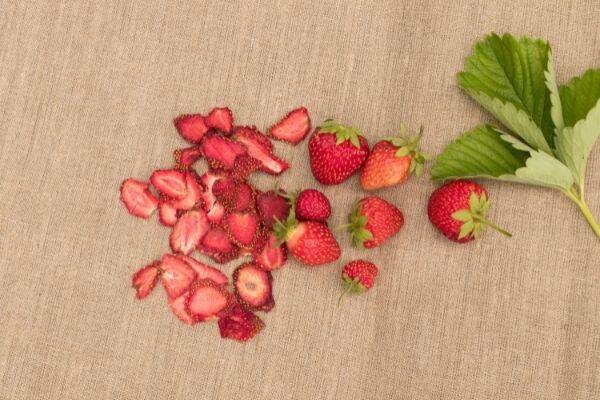Global consumption of dehydrated fruit will reach 4 million tons by 2020
According to Alfonso Velasquez Tuesta, Executive President of Fruits and Vegetables at Sierra y Selva Exportadora (SSE), global consumption of dehydrated fruit will reach 4 million tons due to the current global trend towards eating natural and healthy foods that fight obesity, coupled with increased healthcare awareness. According to Global Industry Analysts (GIA), one of the world's most prestigious market research firms, dehydrated fruit has the potential to become a new export product.
Last Thursday, SSE successfully held a seminar on how to increase the value of fruits and berries in the auditorium of the Chamber of Commerce in Lima, Peru. They also held workshops at the Decentralized Centers (La Libertad, Cajamarca and Lambayeque) in northern Peru from October 17th to 21st.
In December 2015, when SSE Fruits and Vegetables launched the distilling program, it said that Peru produced 1.6 million tons of fruit, of which 160,000 tons was wasted due to a lack of value-added solutions. "Now, this wasted portion can be used not only to produce distillates, but also to convert them into high-quality dehydrated fruit for export to European, Asian and North American markets," he said.

Velasquez Tuesta, who is currently in Spain for the 2017 Salon International Conference in Peru, said that Europe is definitely a potential export market for dehydrated fruit.
"In Spain alone, the consumption of dehydrated fruit rose by 33% between 2013 and 2014, and current consumption is estimated to have increased by 50%," he said.
According to a 2014 GIA survey, the U.S. is one of the world's leading importers of dehydrated fruits (pineapples, mangoes, peaches, capers, berries), accounting for 12.9% of total imports. This is followed by the German market (8.8%), the Russian market (5.8%), the Dutch market (5.6%) and the UK market (5.4%).
The main buyers of mixed dehydrated fruit (containing two or more fruits) are: United Kingdom (18.8% of total imports), Kazakhstan (11.7%), Germany (9.8%), France (8.1%) and Belgium (5.5%) .
With the encouraging data on global demand, SSE will provide all technical support related to dehydration of fruits and berries in the Peruvian fruit and agro-industrial sector. SSE Corporation is one of the national institutions that has been investing in production improvements and The Peruvian Ministry of Agriculture and Irrigation specially invited Jean-Yves Cadalen, a French expert, to conduct 5-day theoretical and practical training for more than 650 people interested in new ways of adding value to dehydrated fruits.innovative products in high demand since 2011.
The Peruvian Ministry of Agriculture and Irrigation specially invited Jean-Yves Cadalen, a French expert, to conduct 5-day theoretical and practical training for more than 650 people interested in new ways of adding value to dehydrated fruits. Experts point out that, unlike other countries such as Turkey and France that focus on dehydrated fruit production, Peru has all the right climatic conditions (temperature, air speed, humidity) for drying and dehydration of fruits and berries, which gives Peru an edge over its competitors in this regard.
He encouraged producers to join the dehydrated fruit industry as the global consumption trend is for natural, healthy and nutritious food.
"The demand for pure organic products continues to rise in countries in the northwest of Europe, and dehydrated fruit is also pure organic because no additives or preservatives are used," the expert added.
The goal of the workshop organized by SSE is to add value to discarded fruit products through sustainable methods and innovations, and one of the best alternatives to this wasteful practice is dehydration, as the global consumption of healthy foods has increased over the past 5 years.
- We have practically run out of broadleaf herbicides for garlic cultivation
- Egypt: Record onion exports in the last six months
- Our fruit drying concept offers added value to growers and traders
- Larger US lemon crop this season
- Peruvian pineapple still has great potential to increase its exports
- Pagoda held a Newton apple tasting in Guangzhou
 Telephone :+86-15562397099
Telephone :+86-15562397099










